Description
Topics Covered in the Class 11th Accounts Live Course –
| Units | Details |
| Introduction to Accounting | Accounting – concept, objectives, advantages and limitations, types of accounting information; users of accounting information and their needs. Qualitative Characteristics of Accounting Information. Basic Accounting Terms – Business Transaction, Capital, Drawings. Liabilities (Non Current and Current). Assets (Non Current, Current); Fixed assets (Tangible and Intangible), Expenditure (Capital and Revenue), Expense, Income, Profit, Gain, Loss, Purchase, Sales, Goods, Stock, Debtor, Creditor, Voucher, Discount (Trade Discount and Cash Discount) |
| Theory Base of Accounting | Fundamental accounting assumptions/concepts – Business Entity, Money Measurement, Going Concern, Accounting Period, Cost Concept, Dual Aspect, Revenue Recognition, Matching, Full Disclosure, Consistency, Conservatism, Materiality and Objectivity Basis of Accounting – cash basis and accrual basis Accounting Standards – Applicability in Ind AS Goods and Services Tax (GST – Characteristics and Objective |
| Recording of Business Transactions | Voucher and Transactions – Source documents and Vouchers, Preparation of Vouchers, Accounting Equation Approach – Meaning and Analysis, Rules of Debit and Credit. Recording of Transactions – Books of Original Entry: Journal Special Purpose books or Subsidiary books – Cash Book: Simple, cash book with bank column and petty cashbook; Purchases book; Sales book; Purchases return book; Sales return book; Ledger – Format, Posting from journal and subsidiary books, Balancing of accounts |
| Bank Reconciliation Statement | Need and preparation of BRS |
| Depreciation, Provisions and Reserves |
Depreciation – Concept, Features, Causes, Factors, Methods of Depreciation: i. Straight Line Method (SLM) ii. Written Down Value Method (WDV), Difference between SLM and WDV; Accounting treatment of depreciation: i. Charging to asset account ii. Creating provision for depreciation/accumulated depreciation account Provisions and Reserves – Difference, Types of Reserves, Difference between capital and revenue reserve |
| Trial balance and Rectification of Errors |
Trial balance – objectives and preparation Errors – types-errors of omission, commission, principles, and compensating; their effect on Trial Balance, Detection and rectification of errors; preparation of suspense account |
| Financial Statements of Sole Proprietorship | Meaning, objectives and importance; Revenue and Capital Receipts; Revenue and Capital Expenditure; Deferred Revenue expenditure. Trading and Profit and Loss Account: Gross Profit, Operating Profit and Net profit; Preparation Balance Sheet: need, grouping and marshalling of assets and liabilities; Preparation Adjustments in preparation of financial statements for: closing stock, outstanding expenses, prepaid expenses, accrued income, income received in advance, depreciation, bad debts, provision for doubtful debts, provision for discount on debtors, Abnormal loss, Goods taken for personal use/staff welfare, interest on capital and managers commission. Preparation of Trading and Profit and Loss account and Balance Sheet of a sole proprietorship with adjustments |
| Incomplete Records | Features, reasons and limitations. Ascertainment of Profit/Loss by Statement of Affairs method. (excluding conversion method) |
‘Things to Know’ before taking Subscription of Live Classes :-
| Package Contents | Live Sessions on YouTube Note: – The fees paid for the Course is Non-Refundable and Non-Transferable. – Course once subscribed cannot be cancelled. |
| Session Duration | 1 Hour Session (4 to 5 Sessions per week) Note: Live Sessions Link will be provided before the Class Time |
| Validity Period | Till Course Completion Note: After Course Completion, there will be no further Live Sessions |
| Back-Up of Live Sessions | If a student misses out the Live Session, recorded version of the Session will be available Note : Note : The Faculty will not cover the Topic again which was taught in the Live Session. It has to be covered through recorded version only |
| Lectures will Play On | Desktop, Laptop, Phone Note: GMAIL ID will be required to Watch the Live Sessions and Recorded Classes. GMAIL ID Change Request will be charged at ₹ 500 Extra Students ID Proof i.e., Aadhar card or Passport or Latest School ID Card will be required for Course Activation. |
| Video Language | Hinglish |
| Doubts Solution during Live Session | Student can raise doubt using the Chat-Box |


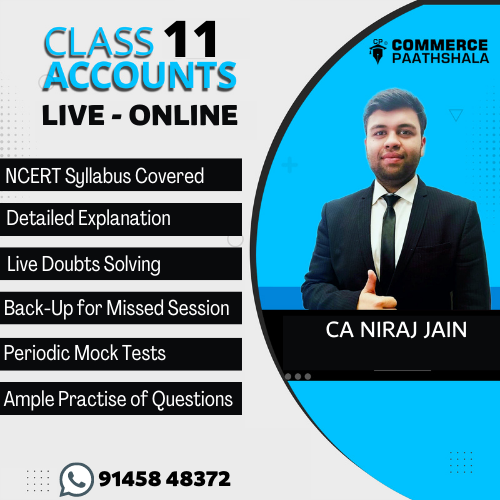
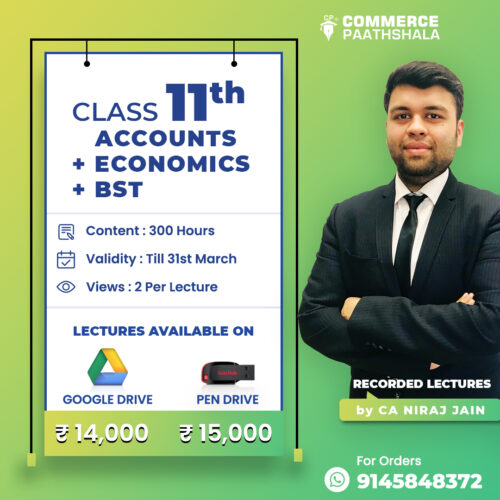
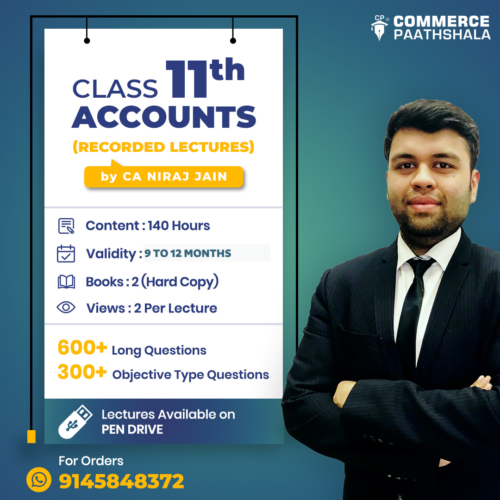
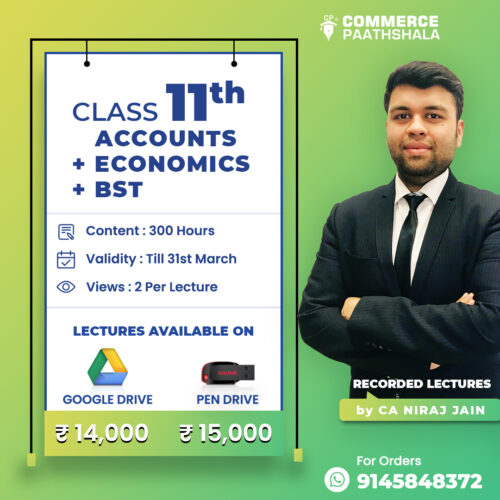
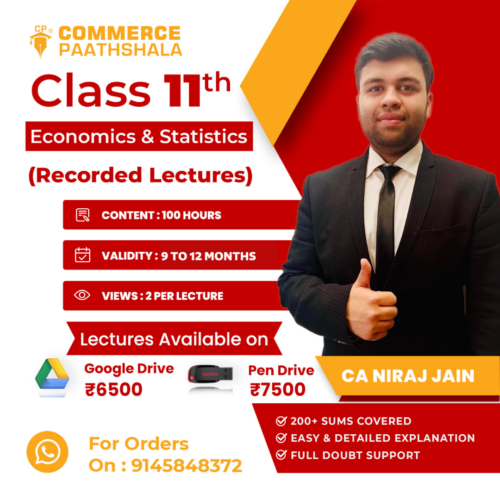
Reviews
There are no reviews yet.